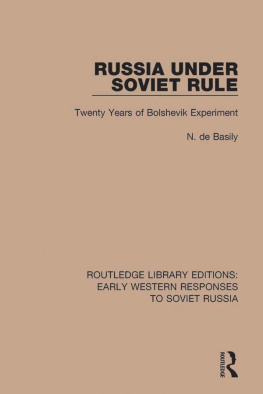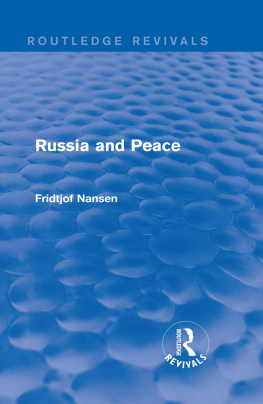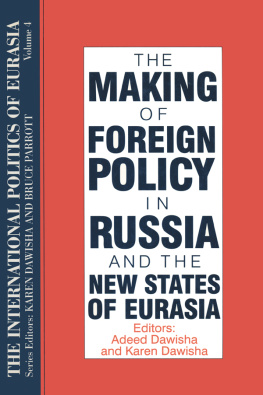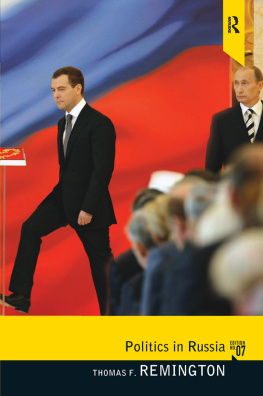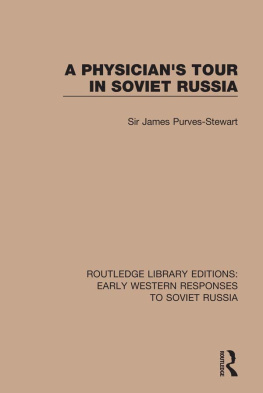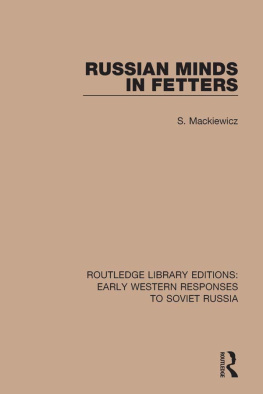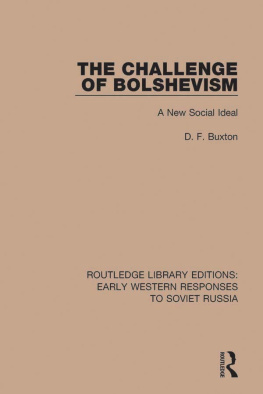First published in Great Britain in 1933 by George Allen & Unwin Ltd
This edition first published in 2018
by Routledge
2 Park Square, Milton Park, Abingdon, Oxon OX14 4RN
and by Routledge
711 Third Avenue, New York, NY 10017
Routledge is an imprint of the Taylor & Francis Group, an informa business
1933 Elisha M. Friedman
All rights reserved. No part of this book may be reprinted or reproduced or utilised in any form or by any electronic, mechanical, or other means, now known or hereafter invented, including photocopying and recording, or in any information storage or retrieval system, without permission in writing from the publishers.
Trademark notice: Product or corporate names may be trademarks or registered trademarks, and are used only for identification and explanation without intent to infringe.
British Library Cataloguing in Publication Data
A catalogue record for this book is available from the British Library
ISBN: 978-1-138-04993-2 (Set)
ISBN: 978-1-315-11072-1 (Set) (ebk)
ISBN: 978-1-138-08547-3 (Volume 7) (hbk)
ISBN: 978-1-315-11129-2 (Volume 7) (ebk)
Publishers Note
The publisher has gone to great lengths to ensure the quality of this reprint but points out that some imperfections in the original copies may be apparent.
Disclaimer
The publisher has made every effort to trace copyright holders and would welcome correspondence from those they have been unable to trace.
Russia in Transition
A Business Mans Appraisal
BY ELISHA M. FRIEDMAN
London
GEORGE ALLEN & UNWIN LTD
Museum Street
FIRST PUBLISHED IN GREAT BRITAIN IN 1933
TO
MY FRIEND
O. F. WEBER
In 1931 the Union of Socialist Soviet Republics finished what was termed The Third and Decisive Year of the Five-Year Plan, which really decided nothing. Will the giant new plants work, or will they be white elephants? The plants are built but will they produce the goods? Large credits fall duewill they be paid? Consumers good are very scantwill they be supplied? Hopes have been held outwill they be realized? These are the questions to which the Russian masses are calling for an answer. The present state of affairs cannot continue. The Soviet Union is evolving. Russia is in transition.
The social structure throughout the world is quaking. As we go to our daily tasks, the numbing effect of routine prevents us from realizing the very historic character of the days in which we are living. Perhaps it is impossible at close range to have a proper perspective on the overwhelming events of our time. Abb Sieys, the brilliant pamphleteer of the French Revolution, once gave terse expression to this lack of appreciation of the significance of the events of ones day. When he was asked: What did you do during the Terror? he answered: I lived. A similar answer would be given by the overwhelming majority of the present generation concerning the world crisis.
In order to get a perspective on the Soviet regime it is necessary to look upon it, not as an event of the day, but as a development of history. And I asked myself, if I were living in 1789, would I not go to France to observe the revolution and its social consequences? It was such a viewpoint that aroused in me a keen desire to go to Russia and see with my own eyes the catastrophe, the terror, the waste, the miracle, and the travail in the emerging of the new order.
The Russian scene is as fascinating to the student as a three-ring circus to a child. In fact, the prime difficulty, as in life itself, is to limit ones field of observation in order to avoid confusion and distraction. The Soviet experiment draws on every aspect of ones technical training, business experience, and social and economic studies. It is of double value to the western world, positively in its high social idealism and aims, and negatively in its cruel and wasteful method and procedure. The visitor, on leaving the country, cannot help hoping that the western world will progress toward a happier social scheme with less injustice to the thinking classes and with less suffering of the masses. This is the challenge to constructive statesmanship and broad-minded business leadership in America and Europe.
I had long been greatly interested in the social upheaval in the U.S.S.R. In 1922, during a year of travel on business in Europe, I visited Helsingfors, Finland. Being only fourteen hours from Leningrad I called upon the American consul to inquire about a prospective trip to the Soviet Union. He replied: We know of no such country. There were great difficulties in obtaining a permit to travel or visa. The spectral posters appealing for succor from famine and disease, then prevailing in Russia, which lined the walls of the Soviet consuls office relieved my disappointment. During several visits to Europe thereafter, I was able to follow Russian developments only at a distance. I finally visited Russia during part of July and August of 1930. My prime purpose was to study industry and management rather than the sociological or cultural aspects of the Soviet experiment.
Upon my return there were many inquiries by friends. Some asked for a memorandum on my trip. I began to write it and found that it grew in the process. Ultimately the report developed into the present volume.
The object of the book is to inform and to clarify. It aims to throw light on affairs in Russia rather than to reflect heat of prejudices concerning Russia. It attempts to appraise rather than commend, to judge rather than condemn. Most of the books on Russia are either propaganda by Soviet sympathizers or by the Soviet government itself or by interests antagonistic to the Soviets. That this book has not fallen into either error may be presumed from the criticism that the manuscript received from partisans on both sides.
The book advocates steps toward conditional recognition of Russia, that is, provided she pays her debts. One-tenth of the worlds population is underconsuming in that country, and for lack of credit it is forcing exports, thus becoming doubly a potent factor in the world depression. There would seem to be neither economic justification nor legal sanction for the policy of our government in refusing to consider terms on which American recognition might be extended.
The book is primarily an independent and scientific study, and is without relation to my business activities. I have had no business interests involving Russian affairs. Neither am I of Russian extraction, nor have I any relatives or friends in Russia. I went to Russia with an open mind, though it obviously is impossible to eliminate the effects of a lifetime of so-called capitalist training and thinking. When I presented to the Soviet officials some of the criticisms cited in this book, the invariable answer was that I was suffering from a capitalist bias, and that I was thinking in terms of what they called capitalist ideology. This was particularly the case in my discussions with the representatives of the State Bank on the question of what seemed by all clear signs to be outright inflation.



